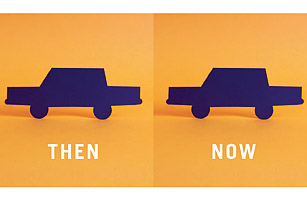
(2 of 2)
In developing countries, the 21st century is likely to be the second age of the automobile. Everyone talks about China's money-guzzling high-speed-rail projects, but of far greater consequence is the less glamorous system of national highways it is building. Today there are nearly 668 million cars in the world; by 2050 there may be 3 billion. Many cars, perhaps most, will be powered by energy sources other than gasoline and may eventually come with robot brains connected to smart highways. But absent the appearance of the long-awaited flying car, the cars, buses and trucks of the future will probably be variations of today's automobiles.
What about politics? For decades, it has been possible to make headlines by predicting the imminent replacement of the ethnically or linguistically defined territorial nation-state with some radically different form of political organization, like city-states or supra-national federations along the lines of the European Union. Manhattan, however, has yet to declare its sovereignty, to the disappointment of many of its residents and other Americans alike. Another perennial strain of geopolitical futurism involves predicting the rise and fall of great powers. We are often told that China will surpass the U.S. in a few decades and usher in a Chinese century. But China's growth model, like Japan's, is based on exports, and in a saturated global market in which American consumers are tapped out, the Chinese export machine may choke. Even if China continues to grow, the country will be far poorer in terms of per capita income than the U.S., Europe or Japan for generations to come. In a decade or two, predictions about Chinese world domination may seem as quaint as those about Soviet global hegemony.
Let me offer some predictions of my own. I predict that in the year 2050, the nation-state will still be the dominant form of political organization, with a few new nation-states added to the U.N. The U.S. will still be the dominant global economic and military power, even if China has a somewhat larger GDP because of its larger population. Most energy will still be derived from fossil fuels, and nuclear power will account for an increasing share of global electricity production, while wind and solar power will still be negligible. Most people will get from place to place by means of cars, buses, taxis and planes, not fixed rail. Thanks to biotech advances, people will live longer and healthier lives, and consequently the largest single occupation in 2050 will be — drumroll, please — nursing!
I know, that's a boring vision of the future compared with a Chinese century in which everybody is a genetically modified immortal who rides monorails and eats algae grown in skyscrapers. But hey, in the future, phones will be really cool.
Lind is the policy director of the New America Foundation's economic-growth program